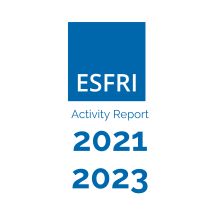Global Science Forum-ESFRI Workshop on assessing public expenditures committed to RIs
OECD (Global Science Forum) and the European Strategy Forum for Research Infrastructures (ESFRI) co-organise an online workshop dedicated to the investigation of the demands from relevant stakeholders regarding RI funding data, existing data-gathering mechanisms for RI funding and their limits, what funding could reasonably be assessed (should this include restricted or categorised definitions of RIs, specific phases of the RI life cycle, full cost of RIs or only elements that are more easy to investigate) and how better standardised RI funding information might be generated.
The workshop will take place on 10 July 2024 and will be fully virtual.
Background
Research infrastructures (RIs) play a critical role in the scientific enterprise. They are now an essential component for all scientific domains and not only allow to push the boundaries of existing knowledge and the production of breakthrough research but they also play a major role in structuring the research system through the development of networks, of user communities and of rich ecosystems that bring together many research and innovation stakeholders.
This increasing role of RIs in the science system, and the increasing complexity of RIs, has led to a steady increase in their funding requirements: not only have RIs become a necessity in all scientific disciplines, but the cost of individual RIs can reach billions or even tens of billion euros. While data is readily available on total research funding in each country, the same cannot be said for the share of funding specific to RIs. Only a few countries are currently able to provide approximate estimates, and even in such cases, these estimates do not always reflect the contributions from all domestic players. Estimating RI funding is complex for several reasons:
This increasing role of RIs in the science system, and the increasing complexity of RIs, has led to their a steady increase in their funding requirement: not only have RIs become a necessity in all scientific disciplines, but the cost of individual RIs can reach billions or even tens of billion euros. While data is readily available on total research funding in each country, the same cannot be said for the share of funding specific to RIs. Only a few countries are currently able to provide rough estimates, and even in such cases, estimates do not always reflect the contributions from all domestic players. Estimating RI funding is complex for several reasons:
- There is no single definition of what is a research infrastructures. In recent years, the term has been used to categorise: single pieces of large research equipment (such as an electron microscope); very large distributed networks of monitoring sensors (such as arrays of buoys); virtually accessible databases; and, complex international projects spanning several continents… While there is an agreement on a few common general principles (typically RIs are considered as facilities that provide resources and services for the research communities to conduct research and foster innovation in their fields, and usually are open to users outside the laboratory or institution that hosts the facility), this can still include a vast diversity of equipment or sets of instruments, scientific collections, archives, scientific data etc.
- Funding may address the different phases of the life cycle of RIs (conception/design, construction, operation, upgrades, phasing out).
- RI funding may come from very different sources, supporting different elements (investment, staff, projects, international partnerships…) and this is often very context specific as countries have different mechanisms and processes to support these different elements.
While there are indications that RI investments are indeed increasing steadily and, in some case, the funders indicate that this has reached their funding capacity, it is unclear whether the share dedicated to infrastructure is growing commensurately or faster than total public investments into R&D, and how RI funding is distributed between new RIs, participation to international RI projects, needs for upgrading existing facilities or just operating RIs and providing user access.
The availability of reliable RI funding data (e.g., RI funding trends, funding distribution along different needs…) alongside trends in research funding would enrich discussions around RI planning and financing for funding and decision-making stakeholders.
This workshop, which is co-organised by the OECD (Global Science Forum) and the European Strategy Forum for Research Infrastructures (ESFRI) explores the demands from relevant stakeholders regarding RI funding data. It looks into existing data-gathering mechanisms and their limits, what funding can reasonably be assessed (should this include restricted or categorised definitions of RIs, specific phases of the RI life cycle, full cost of RIs or only elements that are more easy to investigate) and how better standardised RI funding information might be generated.



